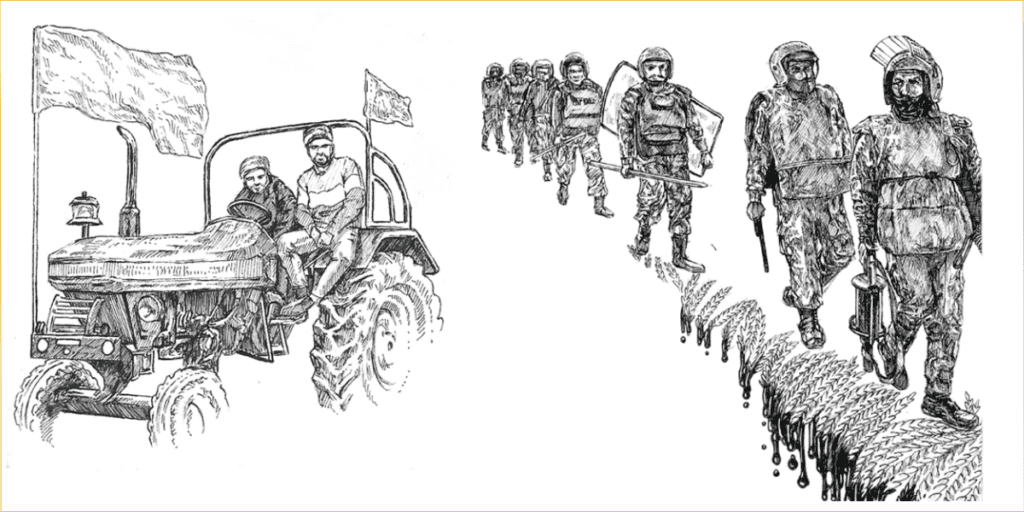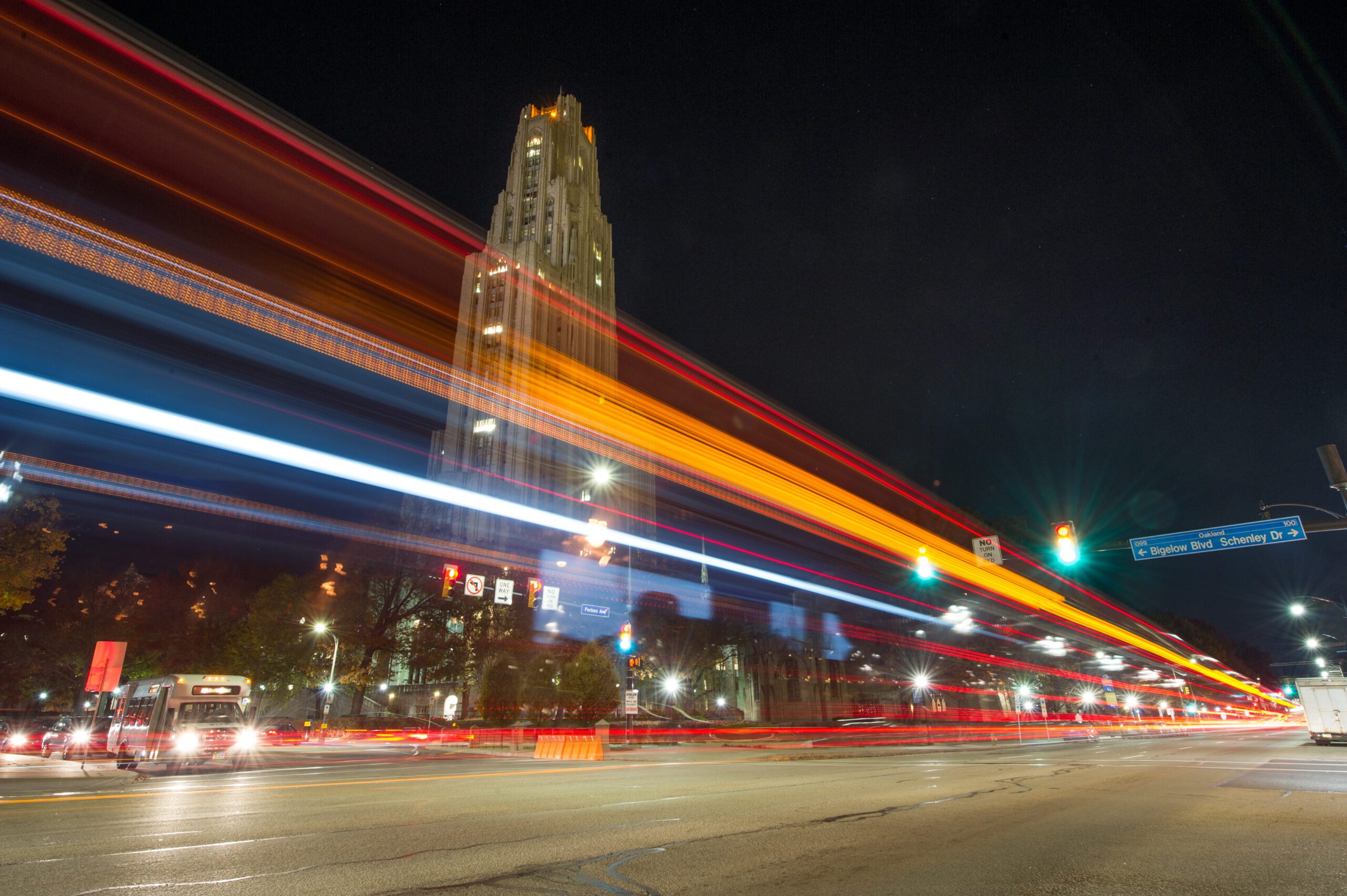
Original artwork courtesy of Carmen L. Petit
A group of faculty at the University of Pittsburgh is convening a series of symposia and a study group entitled “Reimagining Educational Work for Collective Freedom: The Labor Strike as a Portal.” The interdisciplinary, globally-focused effort is a partnership between faculty members at the School of Education and the Dietrich School of Arts and Sciences, and received funding support from the Spencer Foundation.
The project involves:
- Engaging in deep study, creating dialogue partnerships, and building potential for activism
- Convening a symposium series with three gatherings for a public audience and study group participants
- Conducting a student-focused study group that will meet monthly from May 2022 – December 2022
Symposium Series
The symposium series began with the labor strike itself, as form and function, and the agricultural worker strike in India in particular. We understand the strike as the agentive assertion of moving from one set of conditions through transformation to a future imagined by workers through a merger of their labor and their life’s work. And although we understand this particular strike as most immediately catalyzed by an agricultural law crafted to deepen global fascist, neofascist, patriarchal and ethnonationalist alliances and devastate an already precarious agricultural workforce, we also understand it as far more than a reactionary mobilization. In this resistance we saw a portal defined by the work–the collective educational work of studying the conditions and theories of life, of educating one another across imposed social and political boundaries, and undertaking the praxis of freedom.
This strike, and the many others that were taken up across the world in the same time period, inspired us to wonder about the strike as a portal meaningful for educational work. What does the strike teach us about how knowledge can be shared–can be taught and learned–for the radical imagining of a new world in which work is a creative expression of the core passions of life.

